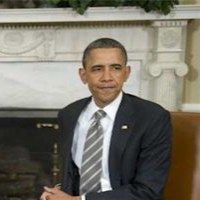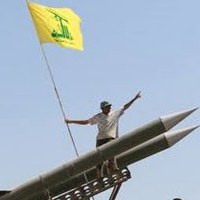![]()
Mon, Dec 06, 2010 | Turkey Analyst, vol. 3 no. 21 | By Halil M. Karaveli and M. K. Kaya
WikiLeaks Scandal Deprives Turkey’s Ruling Party of its Cherished American Cover
“This article was first published in the Turkey Analyst (www.turkeyanalyst.org), a biweekly publication of the Central Asia-Caucasus Institute & Silk Road Studies Program Joint Center”.
U.S. power still matters in Turkey, and the revelation that the AKP does not enjoy universal American support is unwelcome news for the ruling party. The perception that it enjoyed full U.S. support was instrumental in the AKP’s ascendancy. The dissemination of the U.S. diplomatic correspondence from Ankara has called that myth into question, indeed effectively depriving the AKP of its cherished American cover. The reactions of leading AKP representatives to the Wikileaks publication are suggestive of a significant uneasiness. They speak of an anxiety that the U.S. could turn against the AKP, that it has indeed already done so.
Background
Anti-Americanism has long since been a staple of Turkish political discourse. That is so not least because the U.S. is seen as being engaged in constant meddling in Turkish internal affairs. Turks – ordinary citizens as well as many of those who wield power – generally tend to take it for granted that the United States is the main force that orchestrates political events in the country. Indeed, few doubt that Washington has played a decisive role since the 1950s – when Turkey became a NATO member – in determining who does and who does not hold power in Ankara.
The assessments of a string of U.S. ambassadors to Turkey during the last decade, made public by Wikileaks, are contributing to making Turkish perceptions of America’s role more nuanced. Indeed, the single most important effect of the Wikileaks scandal in Turkey so far has been to challenge common assumptions about American ideological and political preferences.
When the Turkish military seized power in 1980, administration officials in Washington were reported to have referred to the coup makers as “our boys”. It is against this backdrop that Turkish commentators have been inclined to explain the fact that the generals – despite their all-evident unhappiness with the ruling Justice and development party (AKP) — have not toppled the government of Recep Tayyip Erdoğan: It is simply assumed that U.S. sanction, which is deemed essential for the viability of a coup, has been missing during the last decade.
Indeed, Washington’s seal of approval has been eagerly sought by other aspirants for power as well. From the very start, the leaders of the AKP applied themselves to dispel the doubts that existed in the U.S. against a party which had sprung from the Islamist movement. Meanwhile, the welcome that Erdoğan was accorded in Washington early on – he was invited to the White House – was interpreted by the secularist opposition as the sign that the new party and its leader had secured U.S. support and that the road to power was thus paved for the Islamists in their new guise. Whatever the merit of that particular interpretation of U.S. policy choices, the fact is that it mattered to Erdoğan that his internal foes – above all the military – thought of him as being the beneficiary of full American support.
The secularist opposition has ever since remained convinced that the AKP is a puppet of the U.S. It a widely held belief among the secularist-nationalists that the U.S. brought the AKP to power as part of a larger, neo-conservative design to remake the Middle East; the very fact that “moderate Islam” was peddled as an antidote to radical Islam by U.S. officials during the administration of George W. Bush – which seemed to make sense from a U.S. perspective – took on an altogether different, and sinister, meaning in the Turkish, secularist reading; a concept that represented moderation in the American perspective on the contrary inspired fear among the secularists in Turkey for whom the very reference to Islam was enough to conjure up a terrifying vision of impending Sharia rule. The fact that the administration of Barack Obama has refrained from celebrating the “moderate Islamic” nature of the AKP has to a certain degree contributed to taking the edge off the most virulent anti-Americanism of the secularist opposition. Indeed, President Obama’s visit to Turkey in 2009, when he paid tribute to the country’s secularist founder Atatürk, was well received in secularist circles.
Implications
Indeed, the reports of the U.S. ambassadors to Ankara reveal that the American diplomats were harboring serious doubts about the reformist and democratic nature of the Turkish ruling party; their assessments about Islamic moderation are tinged with more concern and uncertainty than the official discourse of U.S. administrations during the same period had given reason to anticipate. Less surprisingly, the secularist opposition is not held in high esteem, either.
In Turkish eyes, the revelation that the AKP has not enjoyed the unequivocal support of the U.S. shatters the myth that it is America that picks who is going to rule Turkey. Indeed, the discrepancy between the assessments of the diplomats and U.S. policy toward Turkey in itself serves to underline that America is not omnipotent: the misgivings that the representatives of the U.S. harbor about the democratic credentials of the AKP government notwithstanding, the policy alternatives of the U.S. have been restricted, leaving little option for the U.S. but to be accommodating toward the Turkish ruling party.
However, the reactions of several leading AKP representatives to the Wikileaks publications are nonetheless suggestive of a significant uneasiness; they speak of an anxiety that the U.S. could turn against the AKP, that it has indeed already done so. In fact, American power is far from being dismissed as irrelevant in Ankara. Commenting on the information that was relayed by former U.S. ambassador Eric Edelman that Prime Minister Recep Tayyip Erdoğan had been reported to hold eight secrets accounts in Swiss banks, Mehmet Ali Şahin, the speaker of the Turkish parliament, offered the view that such information – to which Erdoğan reacted with vehemence – could not possibly have been disseminated without the prior sanction of the U.S. administration.
Other representatives of the AKP have been more circumspect in their comments, preferring to divert attention to Israel. “I find it conspicuous that the documents don’t contain anything about Israel”, declared President Abdullah Gül. Meanwhile, Yalçın Akdoğan, the chief advisor of Prime Minister Erdoğan was much more outspoken: He promptly asserted that Wikileaks was the work of Israel, and that the Jewish state, being intimidated by Turkey’s growing influence in the Middle East and by Turkey’s close ties to the U.S., is seeking to sow discord between Ankara and Washington by leveling accusations against the ruling party of Turkey. Akdoğan urged the Obama administration to see through what he described as an Israeli attempt to disrupt the U.S.-Turkish relationship.
The accusations by Erdoğan’s chief advisor, as well as the remarks of President Gül, are yet another reminder that open enmity is increasingly shaping Turkish perceptions of Israel, and that conspiracy theories – far from having lost in credibility and currency in the Turkish context – reign supreme. Ultimately, however, they are more than anything else revelatory of the insecurity of Turkey’s rulers. The conspiratorial remarks and accusations betray a very real anxiety that the U.S. might turn against the AKP. Although they never tire of boasting of Turkey’s newfound regional, indeed even supposedly global power, the Turkish rulers nonetheless feel compelled to plead with the U.S., entreating President Obama not to go along with Israel against Turkey.
Conclusions
The dissemination of the U.S. diplomatic correspondence from Ankara has shattered one foundational Turkish political myth: that the U.S. can be assumed to call the shots in Turkey and that the AKP has enjoyed unequivocal and universal American support. However, in the wake of the Wikileaks scandal, a counter-myth has gained credence a little too quickly among Turkish commentators: that the U.S. is more or less powerless, as is supposedly demonstrated by the fact that it has had to accommodate a ruling party in Turkey which does not represent its preferred ideological choice.
Yet the reactions of the leading representatives of the ruling AKP do not speak of any irrelevancy of American power in Turkey, rather of the contrary. Erdoğan and Gül have apparently not concluded that the U.S. lacks the means to act against their interests.
The revelation that the AKP does not enjoy universal American support could help bolster the U.S. position in Turkey. The conservatives who support the AKP already held anti-American views. The secularists, among which anti-Americanism has been the most vocal during the last decade – since the U.S. was believed to be the force that had brought the AKP to power – will meanwhile reasonably be prompted to take a less emotional, more nuanced view of the U.S. interventions in Turkish politics in the future.
As the vehemence of the reactions of the AKP representatives attests, U.S. power still very much matters in Turkey. The perception that it enjoyed full U.S. support was instrumental in the AKP’s ascendancy and the Turkish ruling party has since depended on that perception being unchallenged; ultimately, what will prove decisive is not that the myth about the American potency to steer Turkish politics has been shattered, but that the AKP has been deprived of its much cherished American cover.



 RSS
RSS











#WikiLeaks Scandal Deprives Turkey's Ruling Party of its Cherished #American Cover | #Turkey http://j.mp/i3vd8f
RT @CrethiPlethi: #WikiLeaks Scandal Deprives Turkey's Ruling Party of its Cherished #American Cover | #Turkey http://j.mp/i3vd8f